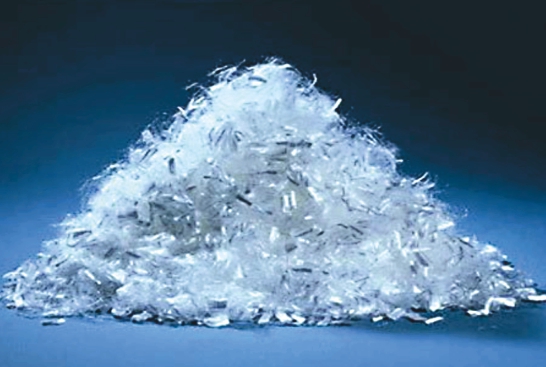Fiber Resa
Fiber Resa by Redwop Chemicals is an advanced fiber additive designed to enhance the performance of concrete and mortar. It prevents shrinkage cracks, reduces water permeability, and helps protect the steel reinforcement from corrosion, ultimately improving the durability and life of structures. Environmentally friendly, cost-effective, and non-hazardous, Fiber Resa also increases flexibility, tensile strength, and compressive strength, ensuring more yield from the mix. It’s non-corrosive, chemically inert, and alkali-proof, making it ideal for use in industrial floors and various concrete applications.
Redwop Fiber Resa is a premium-grade, alkali-resistant glass fiber mesh tailored to reinforce waterproofing and protective coating systems. Designed to seamlessly integrate with cementitious and polymer coatings, it forms a unified composite membrane that improves tensile strength and crack resistance—ideal for surfaces exposed to movement or stress.
Ideal Applications
Use Fiber Resa in high-stress areas of terraces, balconies, roofs, bathrooms, water tanks, and retaining walls. It’s especially effective at reinforcing corners, pipe penetrations, drains, and expansion joints—zones prone to stress-induced leakage. Suitable for both new-build and retrofit waterproofing, it supports durable, long-term membrane performance in residential, commercial, and industrial settings.
Application Guide
Start by ensuring surfaces are clean, sound, and pre-treated. Embed Fiber Resa into the first wet layer of waterproof membrane or cementitious coating, smoothing out air pockets. Lap adjacent sheets by 50 mm and reinforce vulnerable transitions or joints with extra mesh. Apply a second coat to fully embed the mesh. Allow curing per the membrane system—typically 24–48 hours—before exposing to foot traffic or overlaying with tiles or screeds.
Key Features & Benefits
With a finely woven yet robust structure, Fiber Resa enhances membrane resistance to cracking from thermal cycles, impact, and substrate stress. The mesh ensures even stress distribution, preserving waterproof integrity over time. Its chemical and alkali resistance maintains compatibility with cement mortars and admixtures. Lightweight and easy to handle, it offers contractors a reliable method to reinforce corners, fillets, joints, and large expanses efficiently.
FAQ's
Fiber Resa is an advanced additive for concrete and mortar, designed to enhance the properties of the mix. It helps in preventing shrinkage cracks, improving strength, and increasing the durability of structures.
Fiber Resa prevents shrinkage cracks, reduces water permeability, improves the tensile and compressive strength, and enhances the flexibility of concrete. It also protects steel reinforcement from corrosion, thus increasing the structure's lifespan.
Yes, Fiber Resa is environmentally friendly and non-hazardous, making it safe for use in various concrete applications without harming the environment.
Absolutely! Fiber Resa minimizes the need for steel reinforcement in industrial floors and improves the durability and flexibility of the concrete, making it ideal for such applications.
No, Fiber Resa disperses easily in dry ready mix and does not affect the overall quality of the concrete mix. In fact, it enhances the mix by providing better strength, yield, and durability.
Fiber Resa is a glass fiber mesh reinforcement used in waterproofing systems to prevent cracks and delamination, ensuring membrane durability in high-stress areas.
It’s compatible with cementitious, polymer-cement, and liquid membranes; however, always refer to system-specific guidelines.
Embed it into the first wet membrane coat, ensuring full contact and overlap of joints. Apply a second coat to fully seal the mesh.
Overlapping by at least 50 mm is advised to ensure continuity and avoid membrane weaknesses.
Yes—it resists UV exposure and chemical degradation, especially when fully embedded under the top membrane coat.
Absolutely—suitable for internal wet zones like bathrooms and external areas exposed to weather or thermal movement.
No—being lightweight and thin, it doesn’t significantly impact overall membrane build-up or tile screed thickness.
Rolls typically measure 1 m × 50 m (50 m²). Estimate coverage based on the plan area, plus 10–15% extra for overlaps and cuttings.
Yes—cut to size using sharp scissors or knives, ensuring edges are clean before placing.
Yes—cut squares or strips to reinforce corners, pipe penetrations, drains, and junctions for added waterproofing security.



